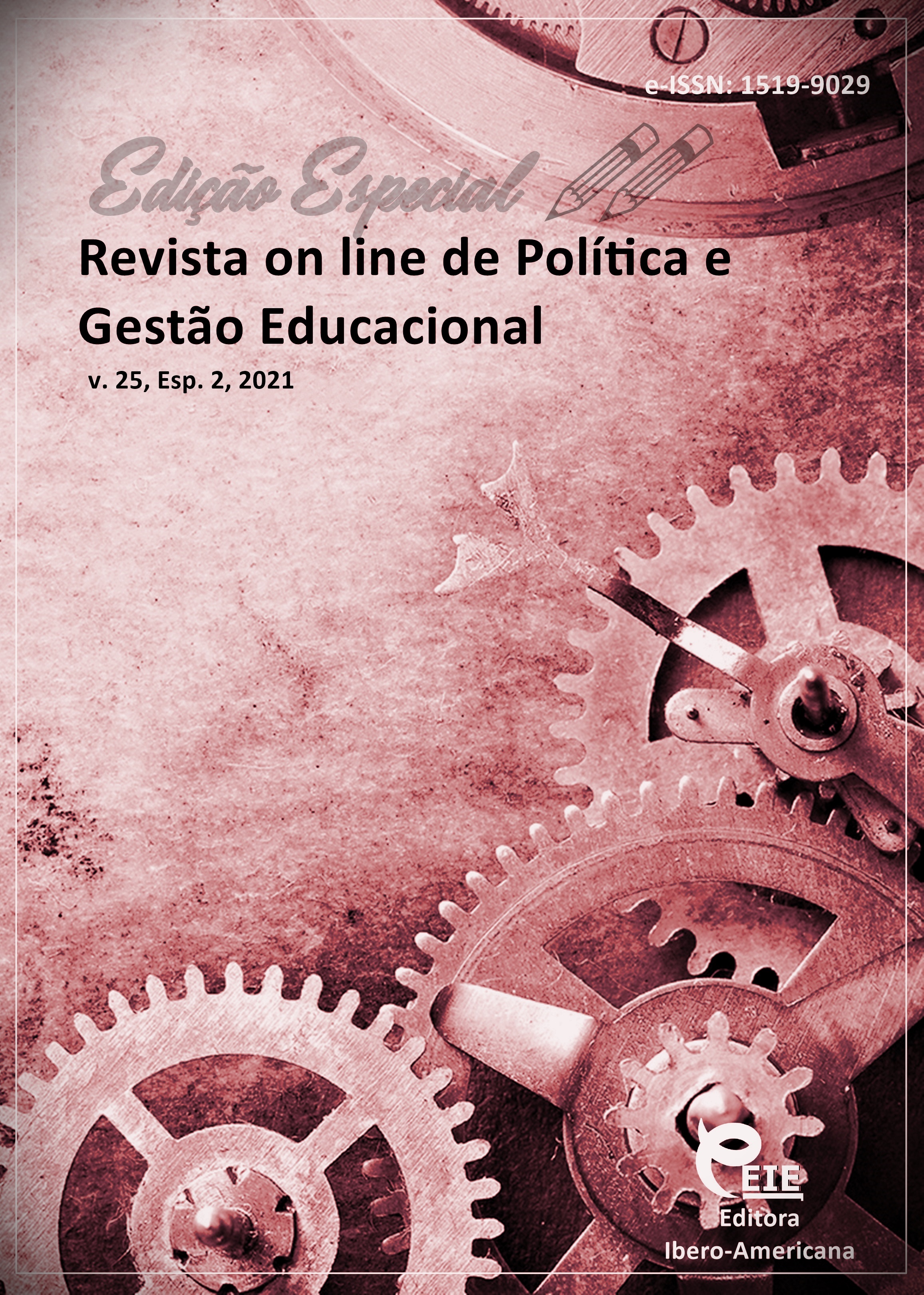Principles of inclusive education and its importance in modern society
DOI:
https://doi.org/10.22633/rpge.v25iesp.2.15271Keywords:
Inclusion, Education, Social environment, Socialization, Adaptation, Disabled personAbstract
The need for a deep restructuring of the education system in Russia is due to the objective processes of society transformation. Considering that the modern education system must meet the social needs of our time, and provide a qualitatively new future, for this it is advisable to consider the processes that are happening now in our lives, as well as their what caused them in the past and how they will develop in the future. Answers to these questions can become the basis for determining acceptable and rational steps in the development of a new education system (including persons with special needs), which represent the younger generation and for them it is necessary to ensure a decent life in the future. In this article, the authors have highlighted the basic principles of inclusive education. The authors argue that the organization of the educational process on these principles will make it possible to turn a person with disabilities into a subject capable of becoming a full-fledged participant in educational activities.
Downloads
References
AFONKINA, Y. A. Principles of inclusive education in the paradigm of social interaction. Humanitarian Scientific Bulletin, v. 11, p. 16-20, 2017.
ALISULTANOVA, E. D.; BISULTANOVA, A. A. Main aspects and principles of using multimedia technologies in inclusive education. Bulletin of GGNTU. Humanities and Socio-Economic Sciences, v. 15, n. 2-16, p. 49-54, 2019.
BABANOVA, E. M. Inclusive education: basic principles, history of formation and experience of the Moscow State University of Economics. Man. Society. Inclusion, v. 3, n. 23, p. 127-132, 2015.
BETKER, L. M. Principles of inclusive education of children with disabilities in secondary schools. Bulletin of Ugrovology, v. 3, n. 18, p. 92-97, 2014.
BORZOVA, O. A. Principles of inclusive education in a modern school. Bulletin of the Institute of Human Education, v. 2, p. 10-13, 2020.
ESENGULOVA, M. M.; RAIMBEK, K. A. Principles, problems and the future of inclusive education principles, problems and the future of inclusive education. Bulletin of the Kyrgyz State University named after I. Arabaev, n. 1, p. 81-85, 2018.
GOCHOSHVILI, N. G. Inclusive education: characteristics, essence, principles. Bulletin of Science and Education, v. 12-1, n. 66, p. 98-101, 2019.
KHUTORSKOY, A. V. The principle of human conformity in inclusive education. Bulletin of the Institute of Human Education, v. 1, p. 6, 2019.
KNYAZKINA, O. A.; KNYAZKINA, I. A. On the principles of inclusive education. Bulletin of Scientific Conferences, v. 12-1, n. 16, p. 69-70, 2016.
KOROTKEVICH, A. A. Approaches and principles of inclusive education in teaching children with special needs. News of the Baltic State Academy of Fishing Fleet: Psychological and Pedagogical Sciences, v. 1, n. 51, p. 229-232, 2020.
LYUBIMOVA, M. A. Principles of inclusive education. Bulletin of the Voronezh Institute of High Technologies, v. 14, p. 245-246, 2015.
MIRZAGITOVA, A. L.; ILIN, A. G.; IBATOVA, A. Z. The role of knowledge and peda gogical communication in modern society. QUID: Investigación, Ciencia y Tecnología, n. 1, p. 1613-1617, 2017.
OPRYSHKO, A. A.; ORZHAKHOVSKAYA, I. Y. Problems of introducing inclusive education in a society that implements humanistic principles. Culture. The Science Integration, v. 3, n. 27, p. 91-96, 2014.
PARINOVA, G. K.; YAKSA, N. V. Inclusive education: modern approaches, models, principles. Problems of Modern Pedagogical Education, v. 45-1, p. 212-221, 2014.
TIMOSHENKO, K. O.; SHUMILOVA, E. A. Formation of an inclusive culture of a teacher as a factor in the development of inclusive education in Russia. In: ASOU Conference: a collection of scientific papers and materials of scientific and practical conferences. 2020.
ZAMASHNYUK, E.V. Differentiation of teaching children with visual impairments in inclusive education. Eurasian Union of Scientists, v. 8-6, n. 53, p. 18-21, 2018.
Published
How to Cite
Issue
Section
License
Copyright (c) 2021 Revista on line de Política e Gestão Educacional

This work is licensed under a Creative Commons Attribution-NonCommercial-ShareAlike 4.0 International License.
Manuscritos aceitos e publicados são de propriedade da Revista on line de Política e Gestão Educacional. É vedada a submissão integral ou parcial do manuscrito a qualquer outro periódico. A responsabilidade do conteúdo dos artigos é exclusiva dos autores. É vedada a tradução para outro idioma sem a autorização escrita do Editor ouvida a Comissão Editorial Científica.











